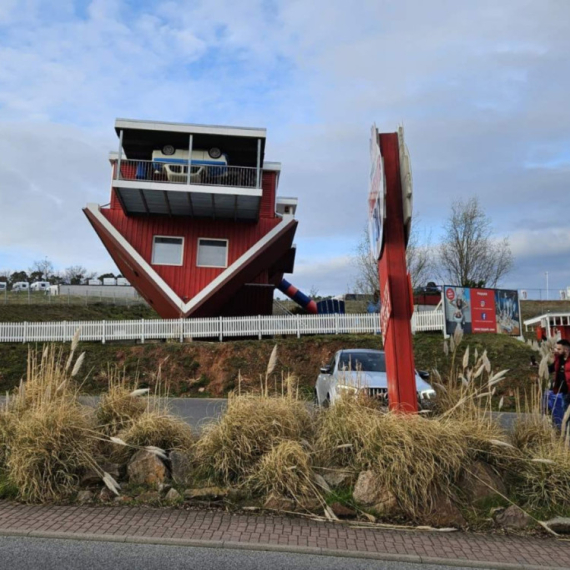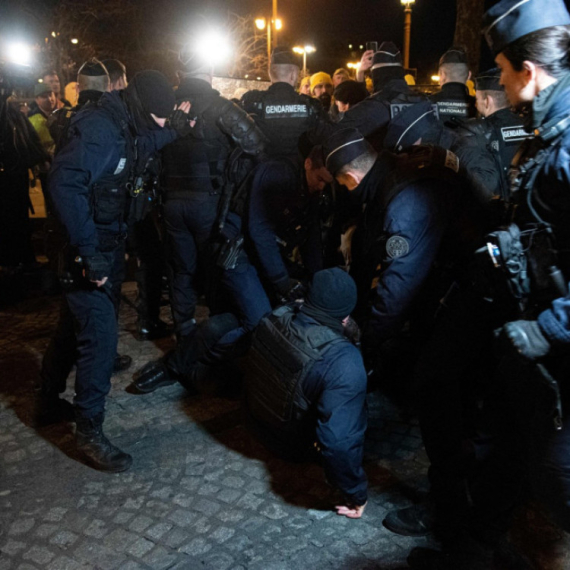Expert says “Serbian media are trapped”
Media in post-communist countries, Serbia included, are economically and politically trapped, Social Sciences Institute’s Jovanka Matić has stated.
Friday, 06.07.2012.
16:10

Media in post-communist countries, Serbia included, are economically and politically trapped, Social Sciences Institute’s Jovanka Matic has stated. During presentation of Association of Independent Electronic Media (ANEM) legal monitoring of the media scene in Serbia, she said that high-quality newspapers had disappeared, that they were more tabloid in character and that they were commercialized. Expert says “Serbian media are trapped” “The state monopolies in Serbia have been replaced by factual monopolies of foreign corporations or domestic tycoons. Election of regulatory and steering bodies in broadcasting corporations is under political influence, journalists are often subjects of threats, attacks, even murders,” Matic explained. According to her, the ruling structures in Serbia have not mentioned media system reforms in their election campaigns as one of their priorities since 2000. She says that different behavior should not be expected in the following years. Lawyer Slobodan Kremenjak said that this year’s campaigns had been reduced to the monitoring of the media and how they covered the elections, “because politicians believe they can win or lose the elections in the media”. According to him, a great confusion was caused by parties’ requests to publish pre-election ads and a negative campaign that was aimed at discrediting other electoral lists and candidates. “Parties’ marketing agencies were competing in production of such ads and the media were brought to a situation in which all responsibility for publishing was exclusively theirs,” Kremenjak explained. He noted that a period before the elections had been called was marked by demonstration of power, especially on the local level where journalists had been prevented from reporting from conferences and other gatherings. Commenting on the Media strategy that was adopted nine months ago, lawyer Kruna Savovic assessed that it was only a “dead letter”, adding that the elections had only contributed to it. She stressed that nothing had been done in order to establish control of the state aid to the media, especially the state-owned ones. ANEM Director Sasa Mirkovic said that FoNet and Beta news agencies had requested from the Anti-Monopoly Commission to investigate the state aid given to Tanjug news agency in the previous two years and to determine whether it was in accordance with the law. Beta
Expert says “Serbian media are trapped”
“The state monopolies in Serbia have been replaced by factual monopolies of foreign corporations or domestic tycoons. Election of regulatory and steering bodies in broadcasting corporations is under political influence, journalists are often subjects of threats, attacks, even murders,” Matić explained.According to her, the ruling structures in Serbia have not mentioned media system reforms in their election campaigns as one of their priorities since 2000. She says that different behavior should not be expected in the following years.
Lawyer Slobodan Kremenjak said that this year’s campaigns had been reduced to the monitoring of the media and how they covered the elections, “because politicians believe they can win or lose the elections in the media”.
According to him, a great confusion was caused by parties’ requests to publish pre-election ads and a negative campaign that was aimed at discrediting other electoral lists and candidates.
“Parties’ marketing agencies were competing in production of such ads and the media were brought to a situation in which all responsibility for publishing was exclusively theirs,” Kremenjak explained.
He noted that a period before the elections had been called was marked by demonstration of power, especially on the local level where journalists had been prevented from reporting from conferences and other gatherings.
Commenting on the Media strategy that was adopted nine months ago, lawyer Kruna Savović assessed that it was only a “dead letter”, adding that the elections had only contributed to it.
She stressed that nothing had been done in order to establish control of the state aid to the media, especially the state-owned ones.
ANEM Director Saša Mirković said that FoNet and Beta news agencies had requested from the Anti-Monopoly Commission to investigate the state aid given to Tanjug news agency in the previous two years and to determine whether it was in accordance with the law.


























































Komentari 4
Pogledaj komentare